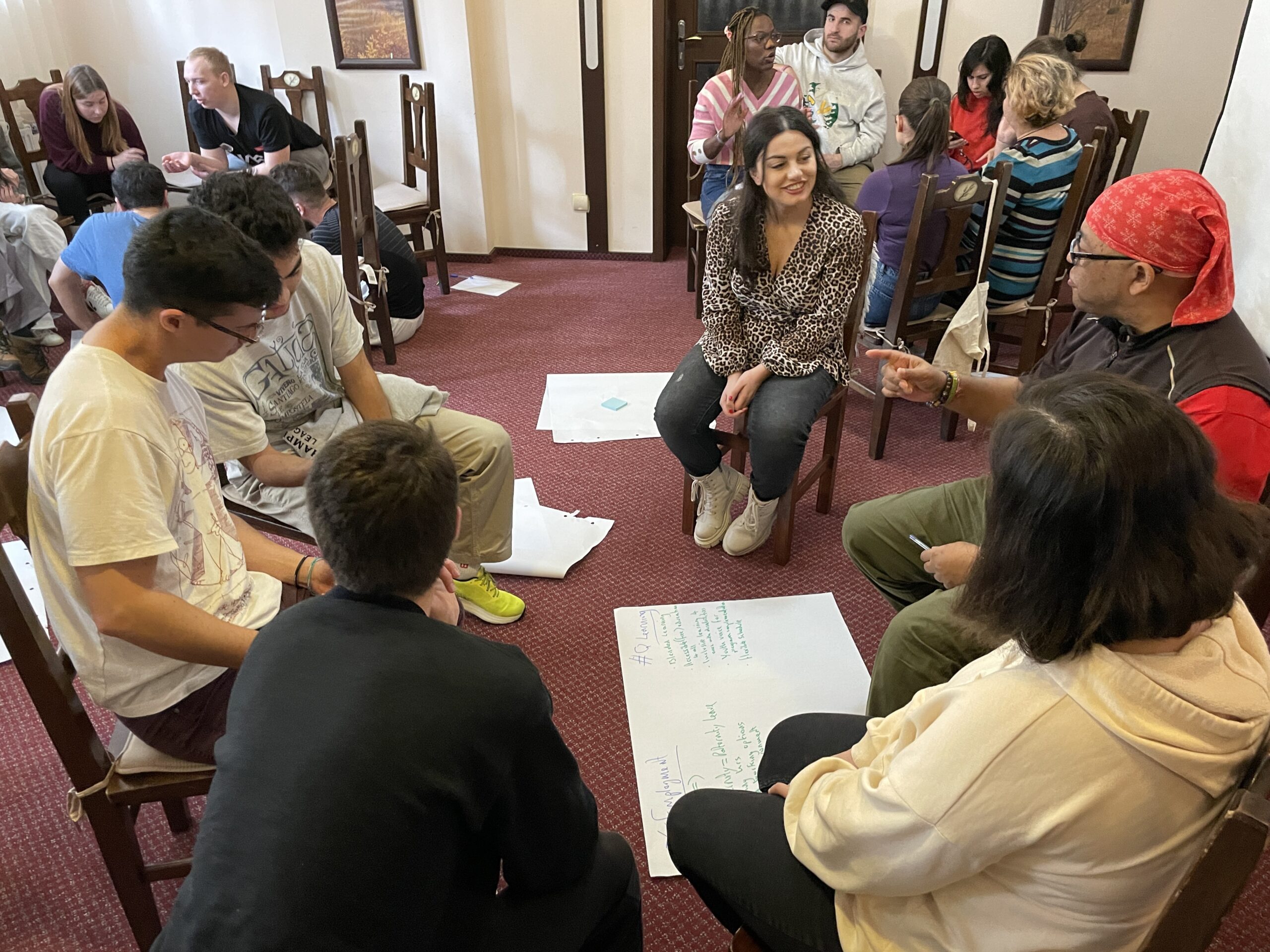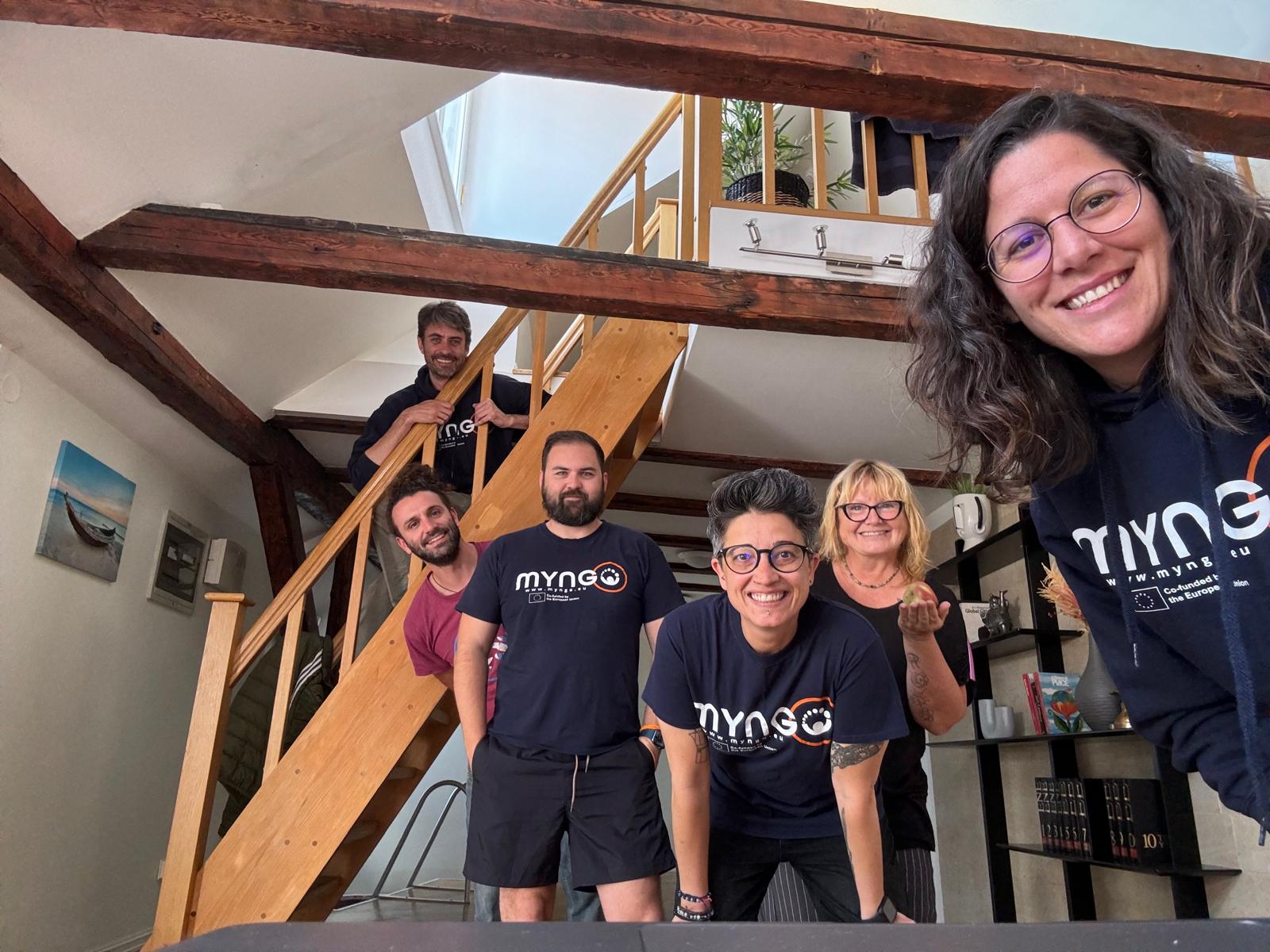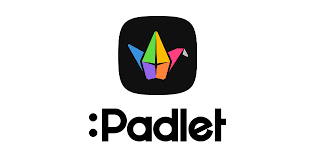In March 2023 the Volunteer Centre Kielce organised an Erasmus Plus funded training course called: Youth Goals for You. It took place in the current EU Youth Capital 2023 Lublin, Poland. To explain what the project was about first we must explain what the European Youth Goals are;
The European Youth Goals are a set of objectives developed by the European Union (EU) in collaboration with young people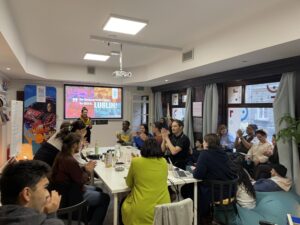 across Europe. The goals aim to guide policy-making and decision-making at the European and national levels and to ensure that young people’s needs and aspirations are taken into account; the European Youth Goals are goals to achieve a youth-friendly Europe of the future. All EU Member States were involved in the development of the Youth Goals and continue to support them. The Youth Goals and the EU Youth Dialogue are a part of the EU Youth Strategy 2019–2027, which sets the direction of common youth policy throughout the EU. The Youth Goals were adopted by the EU in 2019 and consist of 11 goals in total. These goals are:
across Europe. The goals aim to guide policy-making and decision-making at the European and national levels and to ensure that young people’s needs and aspirations are taken into account; the European Youth Goals are goals to achieve a youth-friendly Europe of the future. All EU Member States were involved in the development of the Youth Goals and continue to support them. The Youth Goals and the EU Youth Dialogue are a part of the EU Youth Strategy 2019–2027, which sets the direction of common youth policy throughout the EU. The Youth Goals were adopted by the EU in 2019 and consist of 11 goals in total. These goals are:
- Connecting EU with Youth: Foster the sense of youth belonging to the European project and build a bridge between the EU and young people to regain trust and increase participation.
- Equality of all genders: Ensure equality of all genders and gender-sensitive approaches in all areas of life of a young person.
- Inclusive Societies: Enable and ensure the inclusion of all young people in society.
- Information and Constructive dialogue: Ensure young people have better access to reliable information, support their ability to evaluate information critically and engage in participatory and constructive dialogue.
- Mental health and wellbeing: Achieve better mental wellbeing and end stigmatisation of mental health issues, thus promoting social inclusion of all young people.
- Moving rural youth forward: Create conditions which enable young people to fulfil their potential in rural areas.
- Quality employment for all: Guarantee an accessible labour market with opportunities that lead to quality jobs for all young people.
- Quality learning: Integrate and improve different forms of learning, equipping young people for the challenges of an ever-changing life in the 21st century.
- Space and participation for all: Strengthen young people’s democratic participation and autonomy as well as provide dedicated youth spaces in all areas of society.
- Sustainable green Europe: Achieve a society in which all young people are environmentally active, educated and able to make a difference in their everyday lives.
- Youth organisations and European programmes: Ensure equal access for all young people to youth organisations and European youth programmes, building a society based on European values and identity.
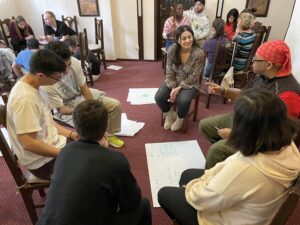 27 participants from 14 countries came together to learn all about the EU youth goals and how to introduce these goals to youth workers/youth leaders. During the training course the participants had the chance to explore each of the goals in a fun and creative way and how they can be connected with their youth work and how they could use them in their daily classes/workshops. The training was based on non-formal educational methods, with lots of role play and experiential learning to give each participant inspiration and examples on how to use those methods according to the topic and connect with their work.
27 participants from 14 countries came together to learn all about the EU youth goals and how to introduce these goals to youth workers/youth leaders. During the training course the participants had the chance to explore each of the goals in a fun and creative way and how they can be connected with their youth work and how they could use them in their daily classes/workshops. The training was based on non-formal educational methods, with lots of role play and experiential learning to give each participant inspiration and examples on how to use those methods according to the topic and connect with their work.
The training course was held in Lublin as it recently became the EU Youth Capital (and first Polish city to hold this title) and it was a great way to connect the youth goals to the youth capital – How these goals are put into practice and how practically the city of Lublin implemented them into their youth capital bid. We got to meet the EU Youth Capital team – who took us through the journey of what it takes to become a youth capital city, their activities, their approach as a city to youth participation and plans for the future. We also got the chance to meet a local Lublin based NGO “Sempre a Frente” who were the lead NGO for the bid to become the Youth Capital – we learned all about their work, their implementation of the youth goals and how they will plan their activities over the coming year.
The training course was a great success with the participants gaining a new awareness of the youth goals and practical skills in how to incorporate them into their work and daily life.

